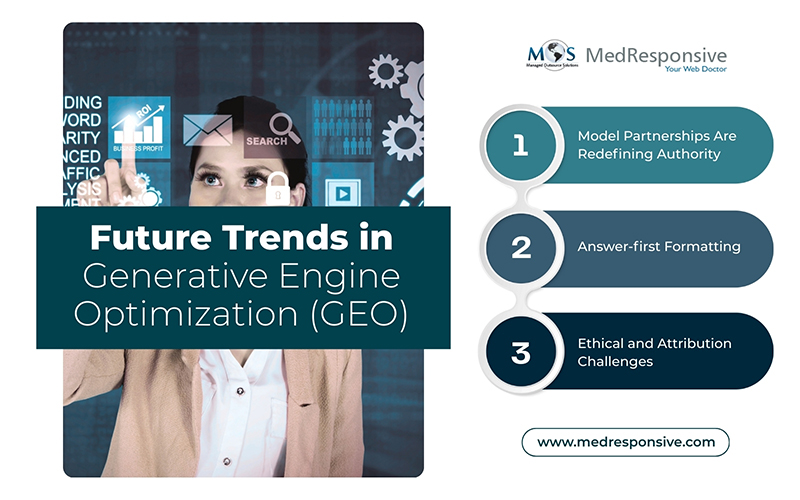Zero-clicks.
The majority of online searches now end in zero-clicks, which means, users will have answers to their queries displayed on the search engine results page (SERP), rather than a series of external links to click on.
If you’re keen about statistics, let me present this to you: over 65% of all searches are now zero-clicks, with that number to surpass 70% by the end of 2025, illustrating a steady progression toward “SERP-first” answers powered by AI SEO.
If those stats made you cringe a little, here are a few more that would make you rethink your SEO strategies:
- 75% of mobile searches included People Also Ask (PAA) sections.
- 30% of local searches on mobile included a local pack, helping users find nearby businesses instantly.
- 20% of desktop and mobile searches displayed featured snippets, often for informational queries.
So, what is the reason for this shifting landscape? Well, don’t worry because you’re not alone in this.
For years now, businesses heavily relied on traditional, organic SEO strategies to drive traffic and generate leads. However, with the rapid adoption of AI, things are now taking a change for the better. AI-powered tools like ChatGPT, Google’s Search Generative Experience (SGE), and Bing Copilot are stepping in to answer questions directly; often without pointing back to your website.
So, if fewer people are going to click your website, what’d that mean for your content strategy?
Say hello to Generative Engine Optimization (GEO). A brand-new approach that’s quickly becoming an inevitable part in the AI era. Think of it as SEO’s smart, future-focused cousin designed not just to rank on Google, but to appear in AI-generated search answers.
Let us now explore GEO in detail—how it works, its role in SEO, tips and techniques and how the future would look like.
Understanding Generative Engine Optimization
This new evolution in digital strategy is designed to optimize content for AI search engines like Google SGE, ChatGPT and Perplexity AI—to name a few.
While traditional search engines focus on optimizing content based on keywords and backlinking, GEO targets AI search engines that generate detailed, context-rich responses to user queries.
A Quick Comparison of Traditional SEO v GEO
| Parameter | Traditional SEO | Generative Engine Optimization (GEO) |
|---|---|---|
| Objective | Rank higher on search engines | Cited by AI in generated answers |
| Audience | People scanning search results | AI systems summarizing trusted sources |
| Optimization | Keywords, backlinks, meta tags | Semantic clarity, factual writing, structured data |
| Result | Click-throughs to your site | Mentions and visibility in AI answers |
Example: When you ask ChatGPT, “what are the best practices for improving SERP rankings?” you might see content referenced from websites like Search Engine Land, Search Engine Journal or MedResponsive. That’s GEO in action: content structured and credible enough for AI to recognize and publish it.
Why Does GEO Matter Now?
- Shifting Search Behavior
Today’s users are subscribers of instant gratification. They don’t have either the time or patience (or both) to wait for anything. So, they’re more likely to trust AI-generated summaries and less likely to scroll through multiple websites. We’re officially in the age of the zero-click search.
According to multiple sources, the number of no-click searches on mobile is now over 65%, and it’s only increasing as AI answers take center stage.
- Google’s Search Generative Experience (SGE)
Google has rolled out its SGE feature, which generates comprehensive AI answers right at the top of search results. Instead of a list of blue links, users now see an AI summary that pulls from multiple sources.
Similarly, OpenAI’s recent partnerships with platforms like Reddit and Stack Overflow are giving ChatGPT access to high-trust datasets, which will make it even more selective about which sources it cites.
- Business Implications
While this change minimizes traditional web traffic, it increases brand exposure, especially if your content is cited.
Brands that understand and adapt to GEO are still getting discovered, but in a new way. Think of it like the difference between being on Page 1 of Google and being quoted by the AI answering someone’s question.
How AI Answer Engines Work
Understanding how LLMs (large language models) generate answers helps you optimize content for them.
How They’re Trained
AI models like GPT-4, V-3 etc. are trained on massive datasets, including:
- Wikipedia
- Public news sources
- Government databases
- High-authority blogs and forums.
What does it learn? Patterns of trustworthy information, formatting, and tone.
Retrieval-Augmented Generation (RAG)
Some AI systems use RAG, which retrieves relevant documents in real-time and converts them into a proper answer. This is how platforms like Perplexity or Google SGE cite real-time content.
What AI Trusts Most
AI prefers content that is:
- Clear and factual
- Unbiased
- Well-structured
- Backed by reputable sources.
That means super long, fluffy, over-the-top, salesy content is less likely to be quoted in search results.
How to Optimize Content for AI Search Engines
- Write Like a Teacher, Not a Marketer
It’s best to stay away from overuse of buzzwords and jargon. Instead, focus on clear, factual, and actionable content. Educational, not technically promotional.
- Structure Matters
Use:
- Bullet points
- FAQs
- Descriptive subheadings
- Short, digestible paragraphs
This helps AI parse and repackage your content accurately.
- Utilize Schema Markup & Structured Data
Schema markup helps search engines and AI tools understand the content context better. Add FAQ, HowTo, and Article schema where appropriate.
- Boost Topical Authority and E-E-A-T
Google and AI models prefer sources that demonstrate: Experience, Expertise, Authoritativeness and Trustworthiness (E-E-A-T).
How to do that? Make sure to consistently write and publish on a niche topic, utilize author bios with credentials, and get backlinks from reputable domains.
- Make Yourself Mentionable
AI engines pick up on what others say about you, not just what you say about yourself. Try this:
- Getting quoted in expert roundups
- Publishing guest posts
- Cross-posting to LinkedIn, Medium, and Reddit
What Are the Most Common Tools and Techniques Used for GEO?
- Google’s SGE Preview Tools: These tools (currently in development) give you a clear insight on how your content is displayed in generative AI search previews. You can use it to evaluate your competitors and find gaps.
- AI Mention Trackers: There are many platforms like AlsoAsked, SparkToro, and Perplexity.ai that can help monitor how often your brand or content appears in AI-generated answers. You could then take necessary steps to optimize your content based on the feedback.
- Simulate AI Search Behavior: Popular AI platforms like ChatGPT, Claude, and Gemini can be used to simulate common questions your audience might ask. After which, you could check if your content is part of the response.
What Are the Best Practices for GEO?
- Be Authentic: Publishing original insights and data. AI almost always prefers content that contributes something new.
- Be Comprehensive: Include detailed author bios, especially for medical, financial, and legal content.
- Be Updated: Writing blogs is one thing, but to update them with evergreen content in a timely manner helps as AI models favor fresh and accurate information.
Future Trends in GEO
- Model Partnerships Are Redefining Authority
OpenAI now licenses content from Reddit, Shutterstock, and others—so content on these platforms might be more visible in AI answers.
- Answer-first Formatting
Expect a rise in content that mimics how AI generates answers: question upfront, clear explanation, then additional context.
- Ethical and Attribution Challenges
As more content gets surfaced by AI without a direct link, expect legal and ethical discussions around proper citation, compensation, and ownership.
GEO Isn’t Replacing SEO; It’s Evolving It
Let me make it perfectly clear. Traditional SEO isn’t dead. It’s just that it is no longer the only game in town. Simply put, if your content isn’t optimized to be visible to AI models, you’re going to miss out on a huge share of future visibility.
GEO helps future-proof your content, because it’s about being recognized by AI engines as a trusted authority, so your brand is part of the answers; even if there’s no click.





